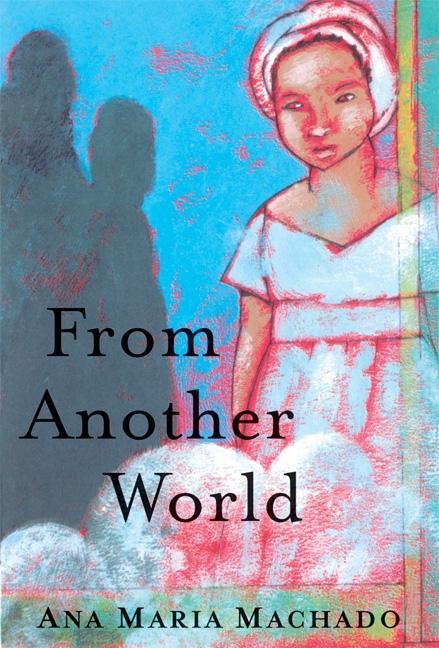Book Descriptions
for From Another World by Ana Maria Machado
From Cooperative Children's Book Center (CCBC)
Brazilian writer Ana Maria Machado has written a lush historical fantasy that explores the legacy of slavery in Latin America through the eyes of four contemporary children. While their parents work on turning the buildings of an old coffee plantation into a bed-and-breakfast for tourists, Mariano, Leo, Elisa, and Teresa spend time roaming the various barns and outbuildings. One night, the spirit of a young girl appears in their bedroom. She is the ghost of a slave who once lived on the plantation. Rosario died watching her family and hundreds of others perish a in a fire caused by the plantation’s ruthless owner. As Rosario visits night after night, the children learn what it was like to live as a slave, which leads them to reflect on how race continues to impact their lives. Rosario wants Mariano to write her story down so others understand—and indeed, it is Mariano’s hesitant, self-conscious voice that narrates the story. But Rosario also longs to know what happened to her brother, who had escaped the night of the fire. The children must piece together the parts of the story that Rosario can’t complete by asking Leo and Elisa’s grandmother to talk about their family history. The tension mounts as the details their grandmother reveals connect their own lives to the tragic events in the past. (Ages 9–12)
CCBC Choices 2006 . © Cooperative Children's Book Center, Univ. of Wisconsin - Madison, 2006. Used with permission.
From the Publisher
Ana Maria Machado, Brazilian author and winner of the Hans Christian Andersen award, brings us the tragic story of Rosario, a young slave from the late 1800s who appears as a ghost to some children living in contemporary time.
Martin and his friends are helping their parents turn an old Brazilian coffee plantation into an inn. The children sleep in a shed, which is being converted into guest rooms. One night they hear crying. Gradually, the slave Rosario appears to them and tells the story of why she is so sad. It is a terrible and tragic account that reveals the danger and instability that existed in Brazil, in the late 1800s, when slavery finally ended. Martin is distressed because he is not a very good student, but he has promised to record Rosario’s story in book form. Humor and happy everyday moments in the children’s lives enliven the book.
Though Rosario’s experience may have happened in another world, by the time the children and the reader confront the terrible episode at the heart of the story, the utter hellishness of slavery is made shockingly clear.
Martin and his friends are helping their parents turn an old Brazilian coffee plantation into an inn. The children sleep in a shed, which is being converted into guest rooms. One night they hear crying. Gradually, the slave Rosario appears to them and tells the story of why she is so sad. It is a terrible and tragic account that reveals the danger and instability that existed in Brazil, in the late 1800s, when slavery finally ended. Martin is distressed because he is not a very good student, but he has promised to record Rosario’s story in book form. Humor and happy everyday moments in the children’s lives enliven the book.
Though Rosario’s experience may have happened in another world, by the time the children and the reader confront the terrible episode at the heart of the story, the utter hellishness of slavery is made shockingly clear.
Publisher description retrieved from Google Books.


